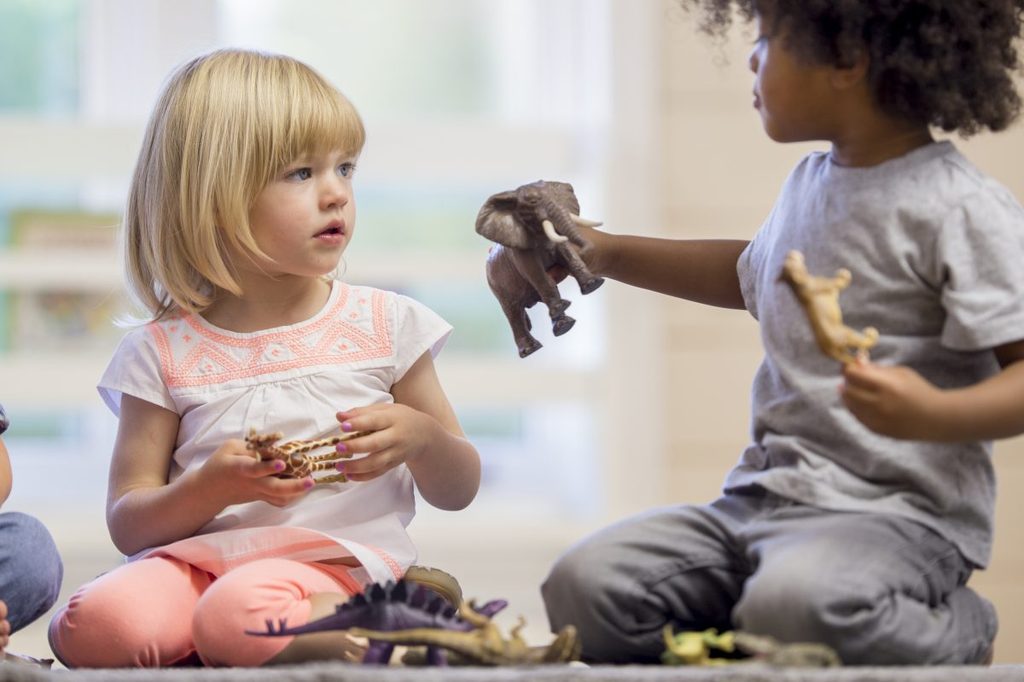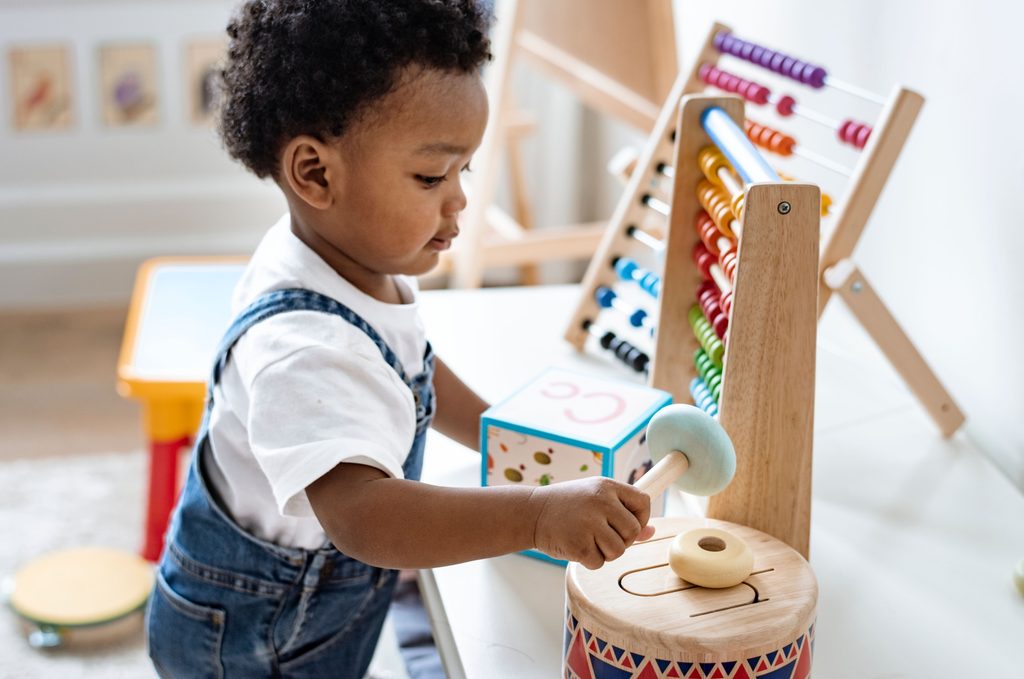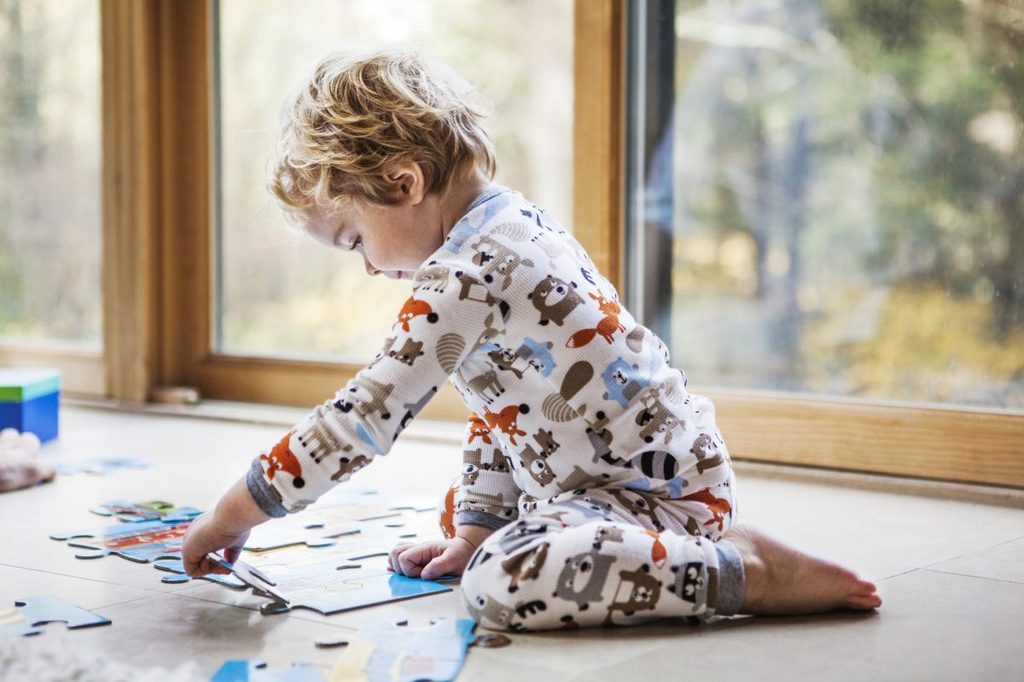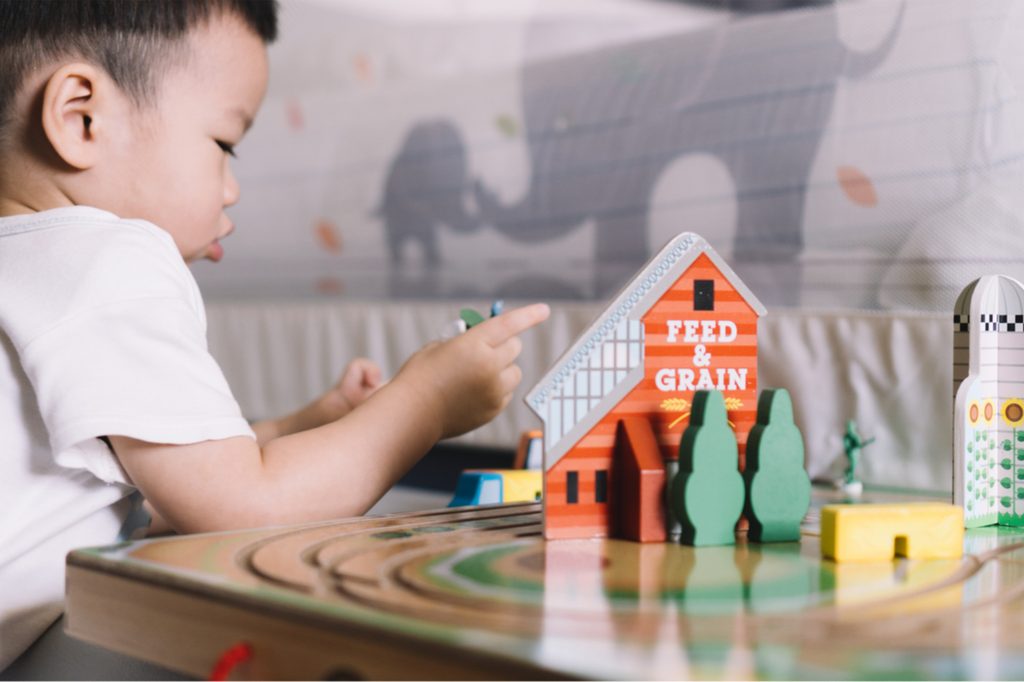
Parents notice new things about their kids daily, especially when it comes to hitting developmental milestones. As toddlers begin to develop motor skills, practice their social skills on the playground, and expand their vocabulary (hopefully past “mine” and “no”) parents may notice some other changes as well and may wonder if those changes are signs of Asperger’s in toddlers.
Parents may realize that their child never looks them in the eye when telling a story, or that their toddler has been seemingly fixated on one specific character from a show. If you have started to wonder if these little quirks could mean something more, you aren’t alone. According to Everyday Health, the CDC states that “about 1 in every 68 children has an autism spectrum disorder.” If you think that might include your tiny tot, let’s go over some signs of Asperger’s in toddlers that you can look out for.

What is Asperger’s?
Asperger’s syndrome is a type of autism. This syndrome is named after pediatrician Hans Asperger, who in 1944 noticed high intelligence but low social skills in a number of his patients. It’s a “disorder most notable for the often great discrepancy between the intellectual and social abilities of those who have it.”
It wasn’t until 1994 that Asperger’s was added to the Diagnostic and Statistical Manual of Mental Disorders, and not until 2013 when it was added to the autism spectrum umbrella. Though experts aren’t fully certain what causes Asperger’s, according to the Genetic and Rare Disease Information Center, “there is a strong genetic basis” and “I also thought environmental factors to play an important role.”

At what age does Asperger’s present itself?
According to research, Asperger’s can be diagnosed as young as 3 years old and is most common in boys. Asperger’s usually doesn’t start to present itself in children until after the first few years. According to the Nationwide Children’s Organization, “boys are three to four times more likely than girls to have Asperger’s syndrome. Most cases are diagnosed between the ages of five and nine, with some diagnosed as early as age three.”
At 18 months and 24 months old, your child’s pediatrician will do screenings for autism. This can help you understand what to look out for if your little one displays symptoms of Asperger’s as they get older.

How can I tell if my toddler has Asperger’s?
Though your pediatrician will screen your child and ask you if you have any questions or concerns at every check-up, you can be aware of some signs if you have an inkling.
Signs of Asperger’s:
- Intense reaction to sensory changes, such as bright lights or loud sounds
- Extreme attachment to unusual objects (favorite remote instead of a favorite teddy)
- Extreme unease when any routine is changed (the tantrums are more full-on and longer)
- Inability to understand other people’s feelings and facial reactions
- Off-sounding voice and speech
- Fixation on one topic, show, or character
- Social interactions that always seem a bit off
- Clumsy, uncoordinated physical traits (might fall a lot, have a tough time coloring or writing)
- Ability to quickly memorize facts or remember where things are
These are some of the most common signs and easiest to spot. If you notice even a few of these signs consistently in your child’s behavior, you should talk to a pediatrician who specializes in autism diagnosis.

Signs of Asperger’s in toddlers quiz
If your toddler doesn’t have a planned well visit coming up or your mind just won’t settle, there are online quizzes you can take. While online questionnaires and quizzes will never be an actual diagnosis, they can better direct you to what to look for and what to ask your child’s pediatrician.
Quizzes
- Self-assessment quiz
- Autism Speaks Checklist
- Childhood Autism Spectrum Test
- Asperger’s Test Site
These are only a few, but they are all free and don’t require you to put personal information in to get your results. But again, none are to be used as a diagnosis; only to help you decide if you should tell a pediatrician that you want your child tested properly for Asperger’s.

Is there a cure for Asperger’s?
- There are no cures or home remedies
- You can help manage symptoms with treatment
- Treatment can mean therapy, education, or training techniques
- There is no medication for the actual syndrome, but medication for some symptoms like anxiety
While there is no grand cure or medication to eliminate Asperger’s, there are plenty of treatments you can mix and match to find one route that’s right for your child. It’s important to get a diagnosis as early as possible so you can start training with your child on how to deal with challenges that come up.

How and when to share the diagnosis
It can be a relief for many to receive an Asperger’s diagnosis, but it can also be somewhat scary. Parents may struggle with when and how to share their child’s Asperger’s diagnosis in the hopes of protecting them from any sort of stigma attached to it.
Child Mind Institute suggests parents take both age and maturity level into consideration when sharing the diagnosis with their child. Highlighting not only your child’s strengths and weaknesses, but those of other family members as well, is a great way to assure them that everyone has things they excel at and struggle with.
The use of metaphors is also said to be helpful in explaining certain difficulties, as is finding role models – either in the community, pop culture, or sports – who speak openly about their own experiences with Asperger’s. “The biggest gift you can give to your child is to respect her uniqueness and provide her the space and an opportunity to think and reflect about this information.”
Those with Asperger’s have excellent attention to detail, a keen eye for patterns, and the kind of persistence and focus that we all wish we could have had in school. Focusing and redirecting to those positives will help keep your toddler on track.
We all have things that could potentially hold us back, but we choose to work around those obstacles. If your child is diagnosed, it’s only a matter of finding the path they need to take to enjoy the same things in life as everyone else.


